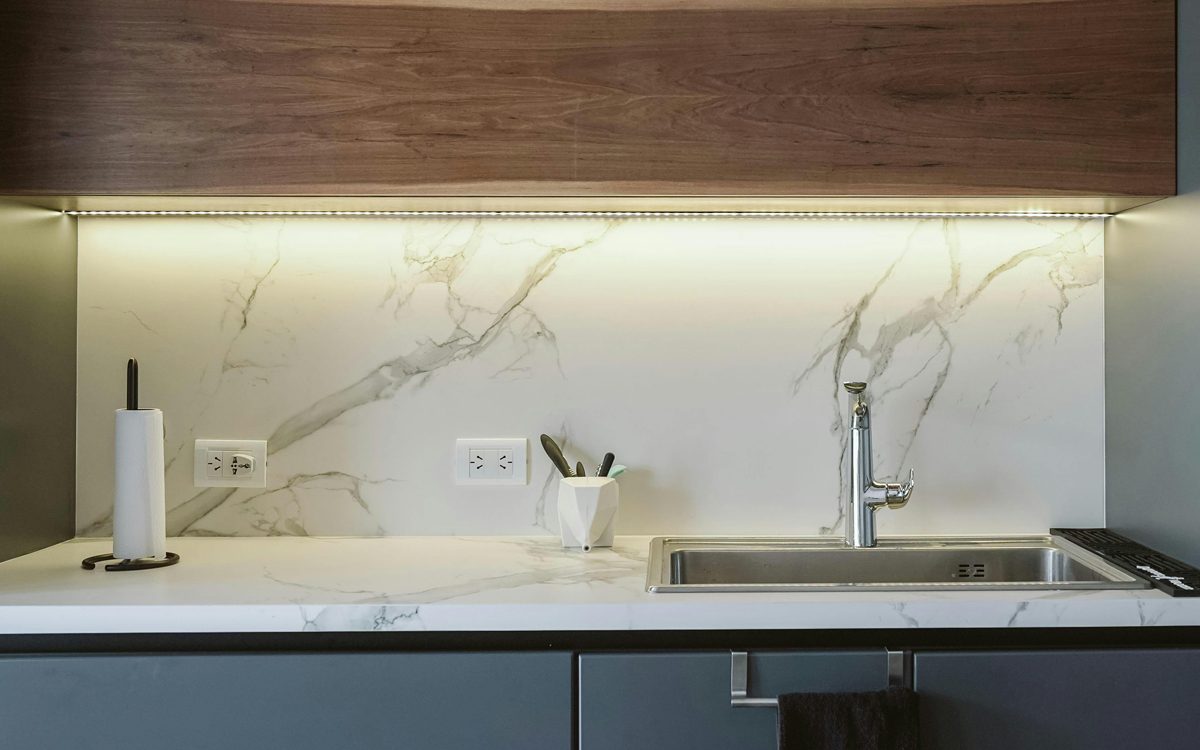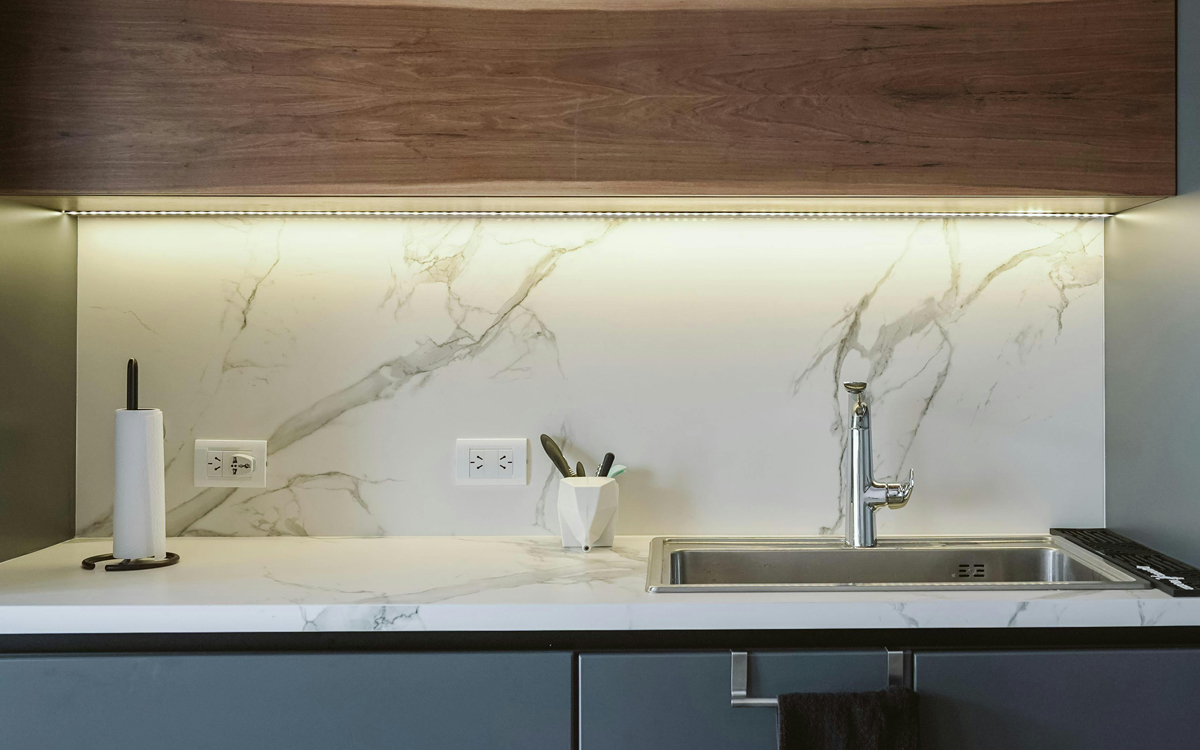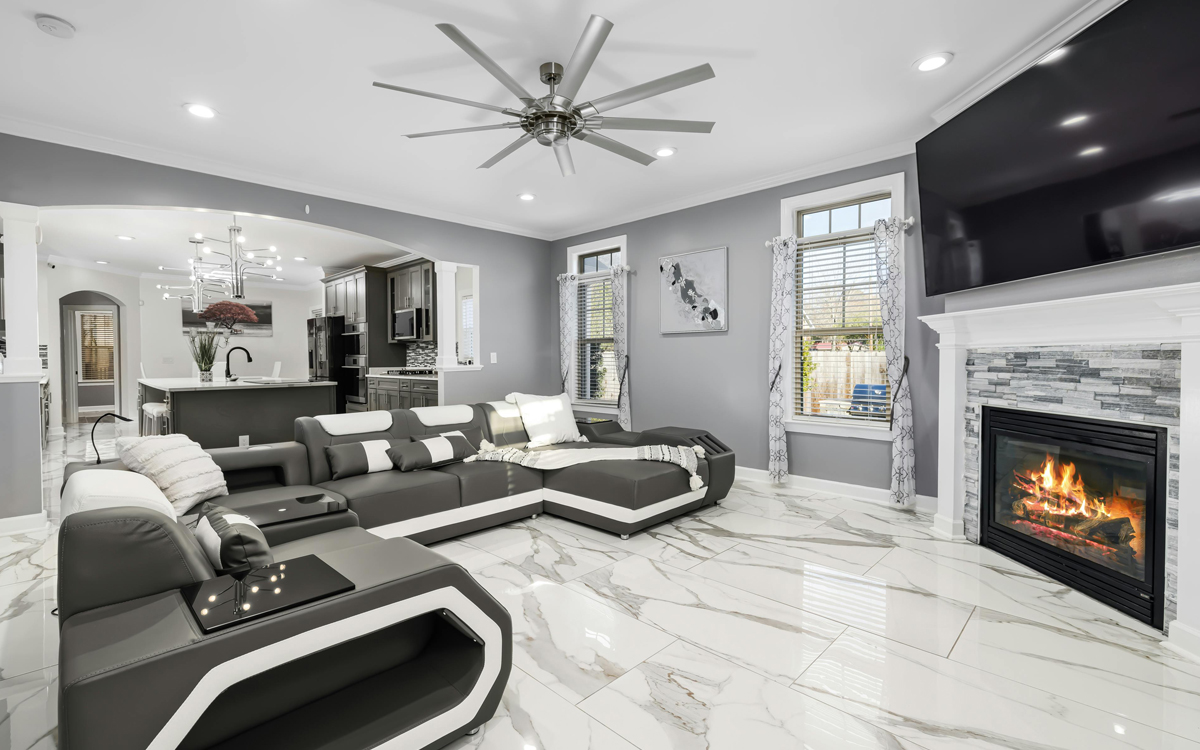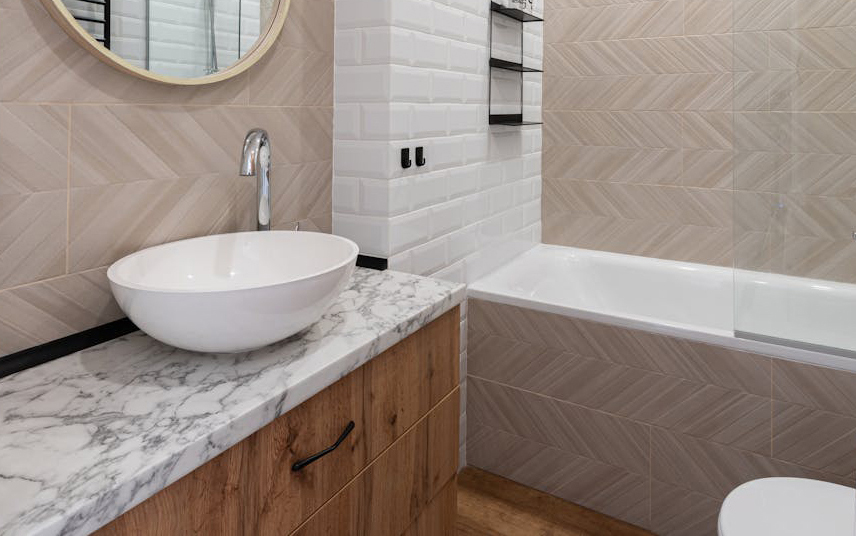Marble has long been a symbol of luxury and sophistication in interior design. However, as trends shift and homeowners seek more durable and sustainable options, the demand for marble alternatives has surged. Whether you’re looking for something that offers better stain resistance, lower maintenance, or simply a different aesthetic, there are numerous materials that can rival the beauty of marble while offering practical advantages. Here’s a deep dive into some of the best alternatives to marble and how they can enhance your space.
- Quartz: The Perfect Balance of Beauty and Durability
Quartz is one of the most popular engineered stone alternatives to marble. Unlike natural stone, quartz is made from crushed quartz minerals combined with resins, which makes it non-porous and incredibly durable. It is highly resistant to stains, scratches, and bacteria, making it an ideal choice for homeowners who want a luxurious yet practical surface.
Advantages of Quartz:
- Non-porous surface: Unlike marble, quartz does not require sealing and is resistant to moisture and bacteria buildup.
- Wide variety of designs: Available in an extensive range of colors and patterns, including options that mimic the veining of natural marble.
- Low maintenance: Requires only mild soap and water for cleaning, making it perfect for high-traffic areas.
- Scratch and stain resistance: Ideal for kitchens, bathrooms, and other areas prone to spills and wear.
Best for: Kitchen countertops, bathroom vanities, backsplashes, and accent walls.
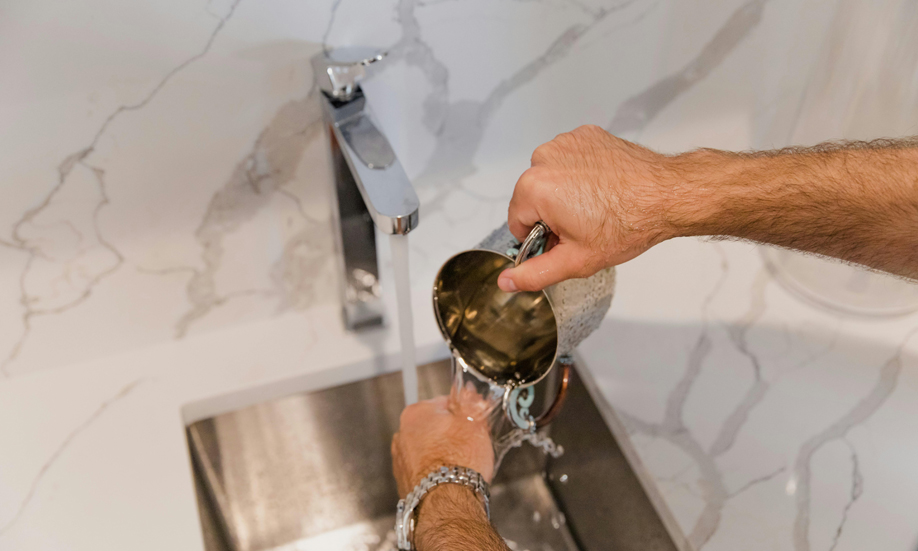
- Granite: Timeless and Tough
Granite is another natural stone that offers incredible durability and a luxurious appeal. While it has a different texture and pattern compared to marble, its natural beauty and resilience make it a sought-after choice for homeowners and designers alike.
Advantages of Granite:
- Extreme durability: Resistant to heat, scratches, and impact, making it perfect for high-use areas like kitchens.
- Unique natural patterns: Every slab of granite is unique, adding an exclusive and custom feel to your space.
- Lower maintenance than marble: Requires sealing but is generally more resistant to stains and etching than marble.
- Outdoor use: Unlike marble, granite is weather-resistant, making it an excellent choice for outdoor countertops and patios.
Best for: Kitchen and bathroom countertops, flooring, fireplace surrounds, and outdoor applications.
- Porcelain Slabs: Sleek, Modern, and Ultra-Durable
Porcelain slabs are a fantastic alternative to marble, offering a sleek, contemporary aesthetic with unmatched durability. These large-format tiles are engineered from fine clay and minerals, making them incredibly strong and versatile.
Advantages of Porcelain Slabs:
- Extremely durable and non-porous: Resistant to stains, scratches, heat, and moisture.
- Lightweight and versatile: Can be used for walls, floors, countertops, and even furniture.
- Mimics marble and other natural stones: Advanced printing technology allows porcelain to replicate marble’s veining patterns with remarkable accuracy.
- Easy maintenance: Does not require sealing and can be cleaned with mild household cleaners.
Best for: Kitchen and bathroom countertops, shower walls, flooring, and furniture applications.
- Soapstone: Understated Elegance with Natural Charm
Soapstone is a natural stone alternative to marble that offers a soft, matte finish and a timeless, organic appeal. Known for its deep, rich tones and subtle veining, soapstone brings warmth and character to any space.
Advantages of Soapstone:
- Naturally non-porous: Unlike marble, soapstone does not require sealing and is highly resistant to stains and bacteria.
- Develops a patina over time: Ages beautifully, developing a unique character with use.
- Heat and acid resistant: Unlike marble, soapstone is not affected by acidic substances like lemon juice or vinegar.
- Easy to repair: Small scratches can be buffed out with sandpaper, making maintenance straightforward.
Best for: Kitchen countertops, sinks, fireplace surrounds, and rustic interiors.
- Concrete: Customizable and Industrial Chic
For those who love a modern, industrial aesthetic, concrete is an excellent alternative to marble. It offers a raw, organic feel while allowing for custom design options such as embedded stones, pigments, and unique textures.
Advantages of Concrete:
- Highly customizable: Can be poured into any shape and tinted in various colors.
- Strong and durable: When properly sealed, concrete is resistant to stains and moisture.
- Unique textures and finishes: Offers endless design possibilities, from polished to rough-hewn surfaces.
- Industrial aesthetic: Perfect for contemporary, minimalist, and loft-style interiors.
Best for: Countertops, flooring, statement walls, and custom furniture.
- Quartzite: The Natural Beauty of Stone with Added Strength
Quartzite is a natural stone that closely resembles marble in terms of veining and color variations but is significantly harder and more durable. It is an excellent alternative for those who love the look of marble but need a surface that can withstand daily wear and tear.
Advantages of Quartzite:
- Resembles marble: Offers the same luxurious aesthetic with better durability.
- Heat and scratch resistant: Stronger than both marble and granite, making it ideal for kitchen use.
- Natural beauty: Unique veining patterns ensure an elegant and one-of-a-kind look.
- Easier maintenance than marble: Requires sealing but is less prone to staining and etching.
Best for: Kitchen islands, countertops, bathroom vanities, and high-end interiors.
- Travertine: Warm, Textured, and Earthy
Travertine is a type of limestone that provides a softer, more textured alternative to marble. It has a natural, warm tone that works beautifully in Mediterranean and rustic designs.
Advantages of Travertine:
- Rich texture: Adds warmth and character to interiors.
- Eco-friendly choice: A sustainable option due to its natural sourcing.
- Versatile applications: Can be used for flooring, wall cladding, and even outdoor spaces.
- Timeless aesthetic: Offers a classic, antique look that never goes out of style.
Best for: Flooring, backsplashes, accent walls, and outdoor pavers.
Choosing the Right Alternative for Your Space
The perfect marble alternative depends on your priorities—whether it’s durability, maintenance, aesthetics, or cost. If you love the classic veining of marble but want something easier to maintain, quartz or quartzite are excellent options. For a modern and industrial vibe, concrete or porcelain slabs are great choices. If you prefer a more rustic, organic look, soapstone or travertine could be ideal.
With so many high-quality alternatives available, achieving a luxurious and elegant look without marble is easier than ever. Whether you opt for the durability of quartz, the rich textures of granite, or the sleek appeal of porcelain, you can create a stunning space that combines beauty with practicality.

